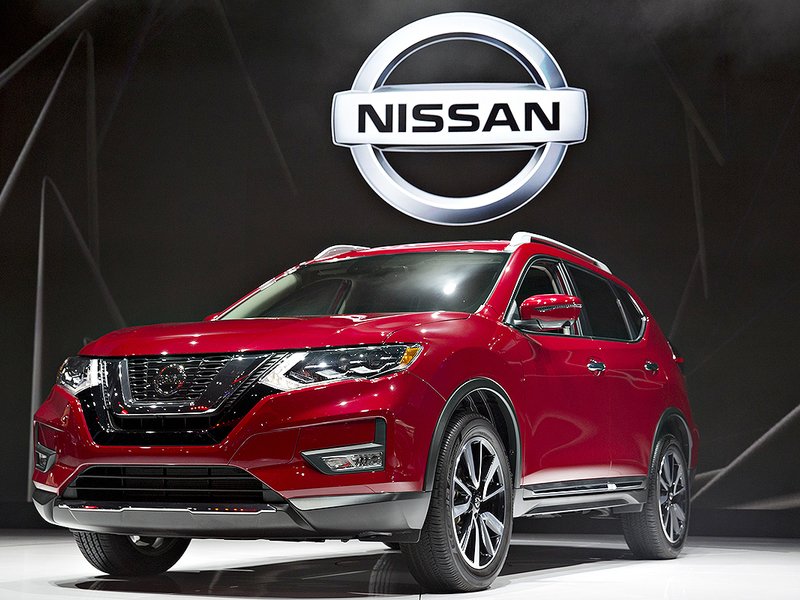
Automakers and safety groups agree that automated emergency braking systems hold the potential to reduce traffic crashes and save lives. But sometimes these systems can activate when there’s no imminent collision and instead place motorists in hazardous situations.
As automakers install more of these systems in their vehicles, concerns over these false-positive events have grown more prevalent.
Nissan Motor Co. is aware of more than 1,400 complaints and field reports alleging such activations, according to documents obtained by the Center for Auto Safety via public-information requests and multiple lawsuits.
The Center for Auto Safety is renewing its calls for a safety recall.
“False braking not only endangers the occupants of the Nissan vehicle but puts all surrounding road users at risk,” Jason Levine, executive director of the nonprofit advocacy organization, said Thursday. “It undermines consumer trust in the long-term safety benefits of such technology.”
The Center for Auto Safety has been pressing Nissan to recall the Rogues for the past 18 months. In March 2019, the organization petitioned NHTSA to investigate based on 87 known consumer complaints at the time.
NHTSA granted the request for an investigation last year, and the number of known complaints has steadily risen. Now the number of known complaints has risen to 15 times the original known number.
In written complaints contained within the federal agency’s database, motorists describe instances of abrupt braking at highway speeds. Specific types of infrastructure also appeared to be triggers for problems — bridges, railroad tracks and parking garages, for example. Some consumers reported multiple instances of the phantom braking.
This June, Nissan submitted documents to NHTSA that acknowledged 1,233 consumer complaints related to the problem, which came from owners of the Rogue, Rogue Sport and Sentra sedan. Nissan said it knew of at least 30 allegations of “minor collisions” stemming from automatic emergency braking incidents, and 10 reports alleging “minor injuries.” Between consumer complaints and field reports, Nissan listed 1,460 unique VIN records related to allegations of the braking problems.
Those come from Rogue and Rogue Sport vehicles produced in the 2017 to 2020 model years, and Sentras made in the 2018 and 2019 model years.
To date, the automaker has issued technical service bulletins and a service campaign that address the problem and says customers can take their vehicles to dealerships for software updates.
In October 2019, a Nissan spokesperson said, “Nissan will continue to work collaboratively with NHTSA on all matters of product safety.” On Friday, a Nissan spokesperson said the company continued to look into the matter.
Levine says a service campaign does not go far enough to thwart safety concerns, and that the automaker should issue a safety recall.
“Service campaigns are a weak shadow of safety recalls,” he said. “They do not require the same notification of consumers, are not easily searchable by new owners of used vehicles and require no long-term reporting by the manufacturer to ensure successful repair rates.”
He says the Center for Auto Safety is seeking more documents via public-information requests that may provide further details on the false-positive events.
The fresh information on the scope of Nissan-related complains arrives at a time when there’s increasing scrutiny of new safety technology, such as automated braking and advanced driver-assist systems, across the industry.
As Levine shared information related to the Rogues on Thursday, AAA released findings from a study of driver-assist systems — which can be comprised of a variety of technologies, depending on manufacturer. According to the study, the systems failed to stop a collision with a simulated disabled vehicle 66 percent of the time.
Over the course of 4,000 miles of real-world driving, AAA researchers experienced 521 events, about one every eight miles. Nearly three-quarters of those issues involved events with lane-keeping features, the organization said.